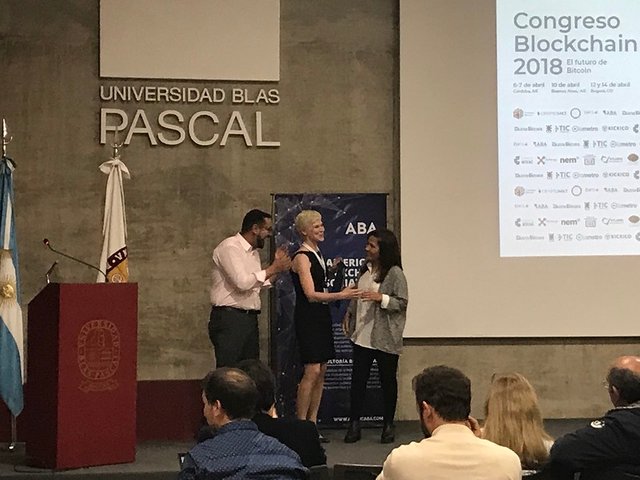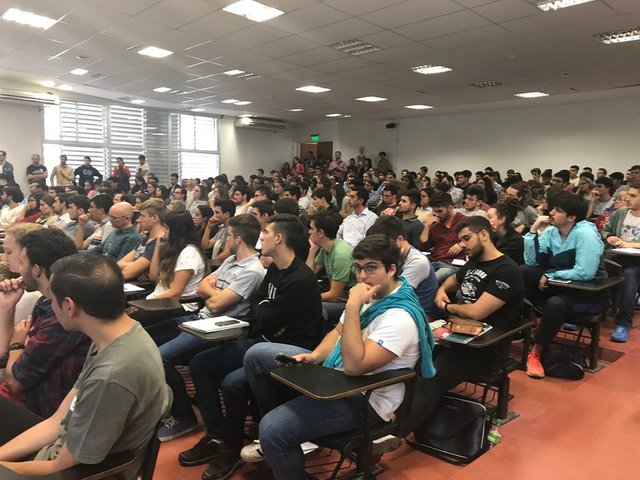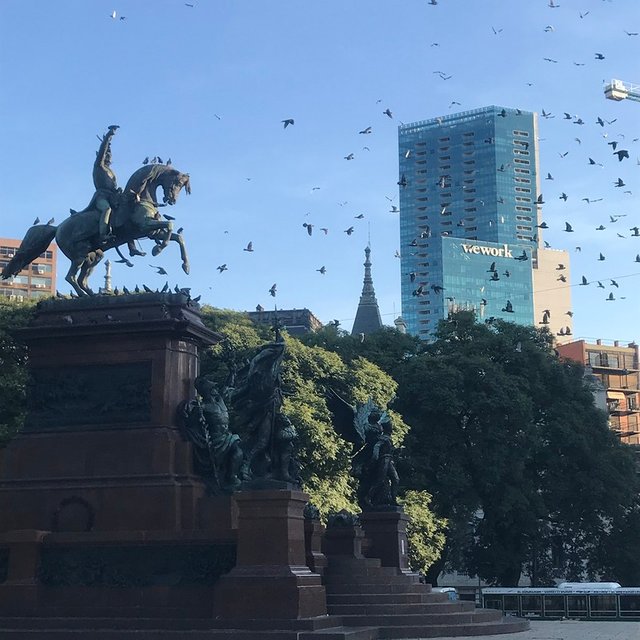Blockchain: Argentina's New Argentum
I was writing this post for Steemit blog, sitting in a not-so-comfortable chair in a yet very cozy café in Buenos-Aires’ dormitory area.
I came here as a part of KICKICO’s impressive squad, designated to uncover the Latin America continent for our company, and to open the crypto world for this market.
Bright big windows of the cafeteria give me with a good view of modestly dressed people with anxious faces, moving back and forth in no hurry – nearly Russian scenery, I’d say – and inexpensive cars driving slowly, mostly outdated Renaults, Fords and Volkswagens. A visible line forms in front of one ATM. Queues are natural here, people have to wait in line to withdraw cash, to pay housing bills, cover internet of mobile phone accounts. Electronic payments are rare here; even banking cards have limited penetration. But the market for fiat day-to-day payment is huge.
And what came as a surprise to me, life in the country is not that affordable. Renting a 20 square meters apartment in Buenos-Aires upscale district starts from $400 a month, in peso equivalent. And the rental agreement states that it will go 20 per cent up in a year. Last year, inflation stood at nearly 30%. All of the imports is taxed with 50% fine, and that is why all imported goods are either absurdly expensive, or simply absent. This protective import tax was introduced as a stimulus measure to support local production and ease competition, but de facto it led to decreasing quality of many products and big gaps on the supermarket shelves.
Exempli gratia, in Argentina it’s really difficult to buy soft white toilet paper, and it is mostly harsh grey variety presented in most of the shops. The country sees little of the world’s leading fashion brands, and local producers and designer of shoes and outfit stand way behind on quality. Monthly average salary in Argentina is reasonably high and comes to as much as $800, and there are welfares on top of that. What is really affordable for that kind of money is food and wine. This situation leads to stratification of the society, fast growth of the poorest class and, in turn, to “leaks of mind” – Argentina’s most educated habitants are frequently immigrating to other countries. Germany is the most popular destination as prices in the European land appear to be lower than in Argentina.
And that is the market where we brought our expertise and vision of the global developments of cryptocurrency markets. For several days, we’ve been on the road visiting leading universities of Cordova, meeting local entrepreneurs and authorities. Those meeting indicated strong interest towards blockchain solutions, ICO mechanisms and opportunities that come with crypt. And Argentineans don’t favor English texts that much and often complain that the sector lacks quality content in Spanish. Local Spanish community is just being formed, and key opinion leaders and experts only get to emerge.
Argentina’s most well known ICOs are:
Decentraland (MANA) — $25 mln in funds collected
Ripio Credit Network (RCN) — $31 mln in funds collected
Rodolfo Andragnes, Bitcoin Argentina public organization Managing Director, is one of the most influential and well recognized leaders.
Leader of the local community is Franco Amati, who moderates the it and leads programming in Signatura, a company that maintained development of blockchain solutions in Argentina.
Argentina’s most popular crypto media are Criptonoticias, Diario Bitcoin and Criptotendencias.
People in the country are very inspired by the idea of economy digitalization, from top to bottom of the society. Cordova authorities’ representatives expressed their thoughts on creating a free economic zone in the province, a sort of blockchain valley to attract businesses and professionals.

Illustration: Sasha Ivanova, KICKICO representative in Argentina together with Cordova Parliament member Sandra Trigo.
During lunch with the Cordova community, one pretty Argentinean told me that he manages several cryptocurrency portfolios. He has about 10 regular clients who have an average account size of 5-10 bitcoins.
Talks with entrepreneurs revealed a great deal of misunderstanding of ICOs, and local businessmen often treat ICO as a fundraising tool for their real businesses. Their talks have one weakness, which is the token role and basic principles of tokenomy construction. Following our prolonged discussions, there was a visible change in their thoughts, and it is very likely that soon we will be hearing about new promising projects from Argentina.
There is strong demand for education in crypt and blockchain. All information that is now available in Spanish is fragmented and incomprehensive, and people seek ways to find out more. They actively participate in events like the ones that we organized – for example, a meet-up we held in local co-working and that was dedicated to ICO marketing and discussion on types of crypto investors.

Illustration: National University of Cordova students listen to guest experts
Local community is quickly collecting expertise, and situation is similar to the one we had in Russia several years ago. There are hints that it can change radically within months, and it is very likely that the new era of decentralized economy will begin here, in Latin America.

✅ @sofiapaskal, let me be the first to welcome you to Steemit! Congratulations on making your first post! I gave you a $.02 vote! Would you be so kind as to follow me back in return?
Coins mentioned in post: